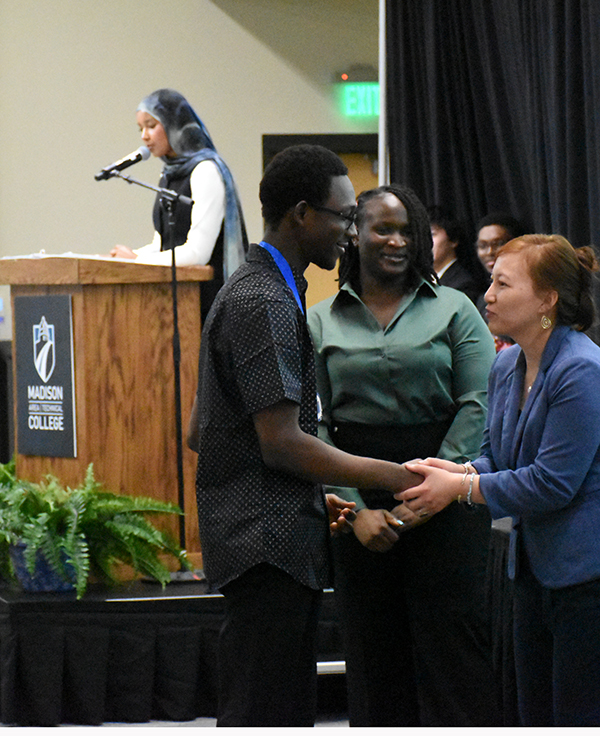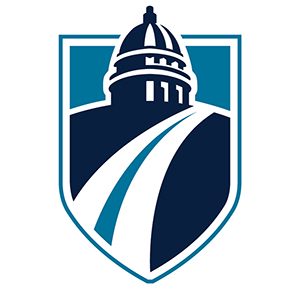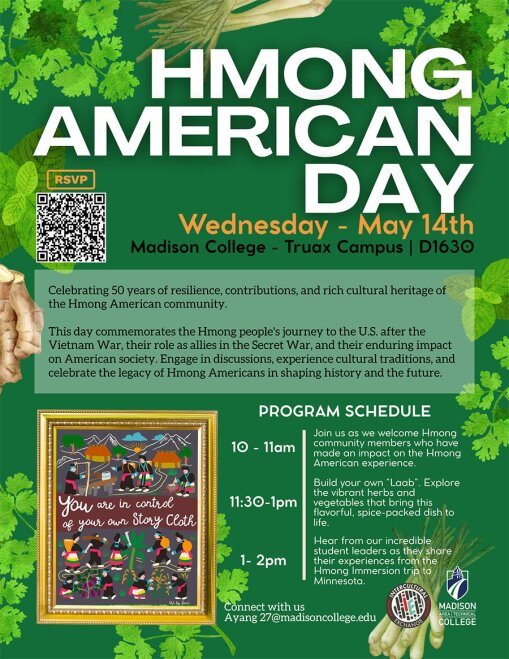Starting fall 2014, students at Madison College will be able to participate in an honors program. The model for this particular program is based on projects. Dr. Julia Haseleu, a psychology instructor and director of the honors program at Madison College created this program. Haseleu had the idea of creating an honors program ever since she started working at the college eight years ago.
She said she had successfully developed an honor program at Kirkwood Community College in Iowa that the future honors program at Madison College is modeled after.
“It was phenomenal within our first year we were written up in the Phi Theta Kappa international newsletter and promoted as a model for Honors Program around the country. The college was winning awards. Students were winning scholarships from local colleges – Mount Mercy and the University of Iowa. Faculty was winning awards, so everybody was benefiting from participating in the honors program,” she said.
To recreate the conditions of this success at Madison College, Haseleu and her dean Todd Stebbins gathered a committee, the Honors Initiative Committee, whose role was instrumental in approving the different components of the honors program. Composed of instructors, deans, directors and administrators, this committee represents all the different schools at the college.
Students can take an honor project with their favorite faculty member. The project can be one from three credits, depending on the discipline of the chosen faculty member the student is working with.
New students will be accepted in the program if they meet the 3.5 GPA requirements and a letter from a high school teacher. Currently enrolled students who earned 12 credits and accumulated a 3.5 GPA will be accepted in the program.
For the pilot semester next fall, only full-time faculty member will supervise students’ honors projects. After that, part-time faculty member will also be able to supervise students provided they went through the honors faculty workshops that happen from March 10 to Aug. 28. Faculty members that want to participate in these workshops must sign up in the Center for Excellence in Teaching and Learning (CETL) website.
A tie with Phi Theta Kappa Honor Society will allow its members to fit their project under Phi Theta Kappa’s current honors topic, “Frontiers and the Spirit of Exploration.” To not be limited, both members and non-members of the honors society will be able to choose an alternative topic of their choice that will be approved by the committee.
A few students have already expressed an interest in the honors program. Contessa Cox, a student in the liberal arts transfer program and Phi Theta Kappa member, is hoping to participate next fall.
“The whole reason I’m back in school is because I went to college before and I started out doing well but ended up getting kicked out the last time I went. I didn’t know how to handle the independence and got caught up with some of the wrong people,” she said.
She hopes that the honors program will enhance her curriculum. Her honors project would be a literature review of a book as an English honors project with instructor Laurie Fitzgerald.
“I decided to come back and have really been working harder to show that I am serious about earning a degree,” Fitzgerald said. I think being part of the honors program will show that to whichever school I apply to transfer to.”
Indeed, honors program have many benefits for students: graduation recognition, letters of recommendations that will get the attention of transfer colleges. Honors programs are known for enhancing curriculums but also improving retention levels. According to a Noel-Levitz study of 2011, honors programs for academically advanced students were among the top ranked retention practices across institutions.
Christina Farrell, another student enrolled in the liberal arts transfer program, is also thinking about getting into the honors program. She said the honors program immediately piqued her interest when she heard about it. She’d like to take advantage of the opportunity to work with a faculty member who knows the field she’s interested in. Her honors project would fit under the field of psychology with Dr. Haseleu.
“It can offer students a deeper look into the field of their choice,” Farrell said. “Plus, I think it can help the students who might not know exactly what they want to go into right now; if there’s a major you’re really interested in but don’t know if it’s suitable for you, see if an instructor you like wouldn’t mind doing a project. As far as I can see, this program is full to the brim with potential to help students and their education for the better.”
The Honors Initiative Committee
Julia Haseleu, Faculty Chair, Honors Initiative Committee (A&S)
Todd Stebbins, Dean, Arts & Sciences
Jonathan Pollack, Faculty Member, Arts & Sciences
Marie Dusio, Faculty Member, Health Education
Carlotta Calmese, Director Retention & Student Services
Renee Alfano, Director of Student Life, Phi Theta Kappa Advisor
Doug Holton, Dean, Public Service Center
Devon Vanden Heuvel, Faculty Member, School of Applied Science, Engineering and Technology (ASET)


























